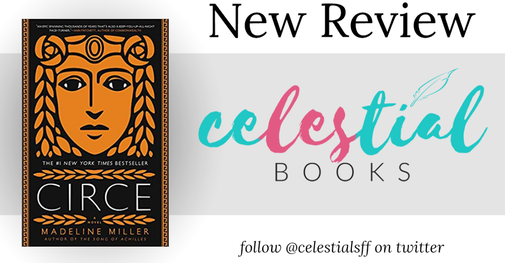ORIGINALLY PUBLISHED IN AUREALIS MAGAZINE
MAIN PAIRINGS: M/F
QUEER CONTENT: Very little, but the general universe includes accepting references to diversity of sexuality. This review is more focused on this book as an exquisite piece of feminist fiction.
Madeline Miller’s debut novel, The Song of Achilles, won the Orange Prize for Fiction in 2012. She has not left her fans disappointed with her new foray into the world of Greek mythology, Circe.
Drawing on the rich characters, worlds and didactic stories that underpin Homer’s The Odyssey, as well as a variety of other Greek poems and plays, Miller offers a fresh version of events told from the perspective of Circe, the witch of Aiaia. This feminist adaptation delivers all that it promises: a masterfully woven tale of life as a woman in a world obsessed with the achievements of masculine heroes and unassailable monsters.
A lesser goddess born of Helios and one of the many nymphs he beds, Circe is scorned by gods and men alike throughout her seemingly endless life. Crossing the centuries, Circe becomes embroiled in the turmoils of Prometheus, King Minos, Daedalus and his hapless son, Icarus, the adventurer Jason and his ill-fated wife, Medea, and of course, Odysseus himself.
Where Circe’s father dismisses his supposedly unimpressive daughter as being ‘dull as a rock’, Miller’s masterful first-person narration unveils to readers that Circe is so much more. She faces the intrigues and tribulations that come her way with a growing finesse and strength.
Circe is an insightful exploration into an array of timeless themes and experiences. These range from abject jealousy, unrequited love and familial discord to the challenges of being a single mother (none of which are dulled by divinity) and the trauma of loss.
Some readers may find Miller’s prose too poetic at times—there are sea metaphors aplenty and her landscapes are ornate and almost utopian. Given the life experiences of our narrator, these descriptions and their artistry are fitting and ensure consistent characterisation.
Both satisfying and infuriating, the indeterminate closing lines of the final chapter will stay with a reader long after they close the book, as will Circe’s evolution from a lonely, naïve child to a talented enchantress and matriarch.


 RSS Feed
RSS Feed

